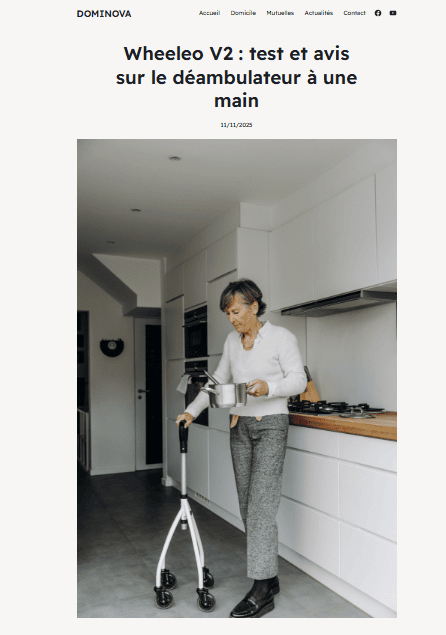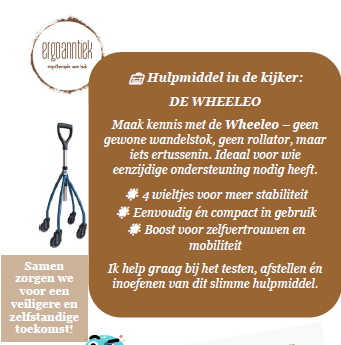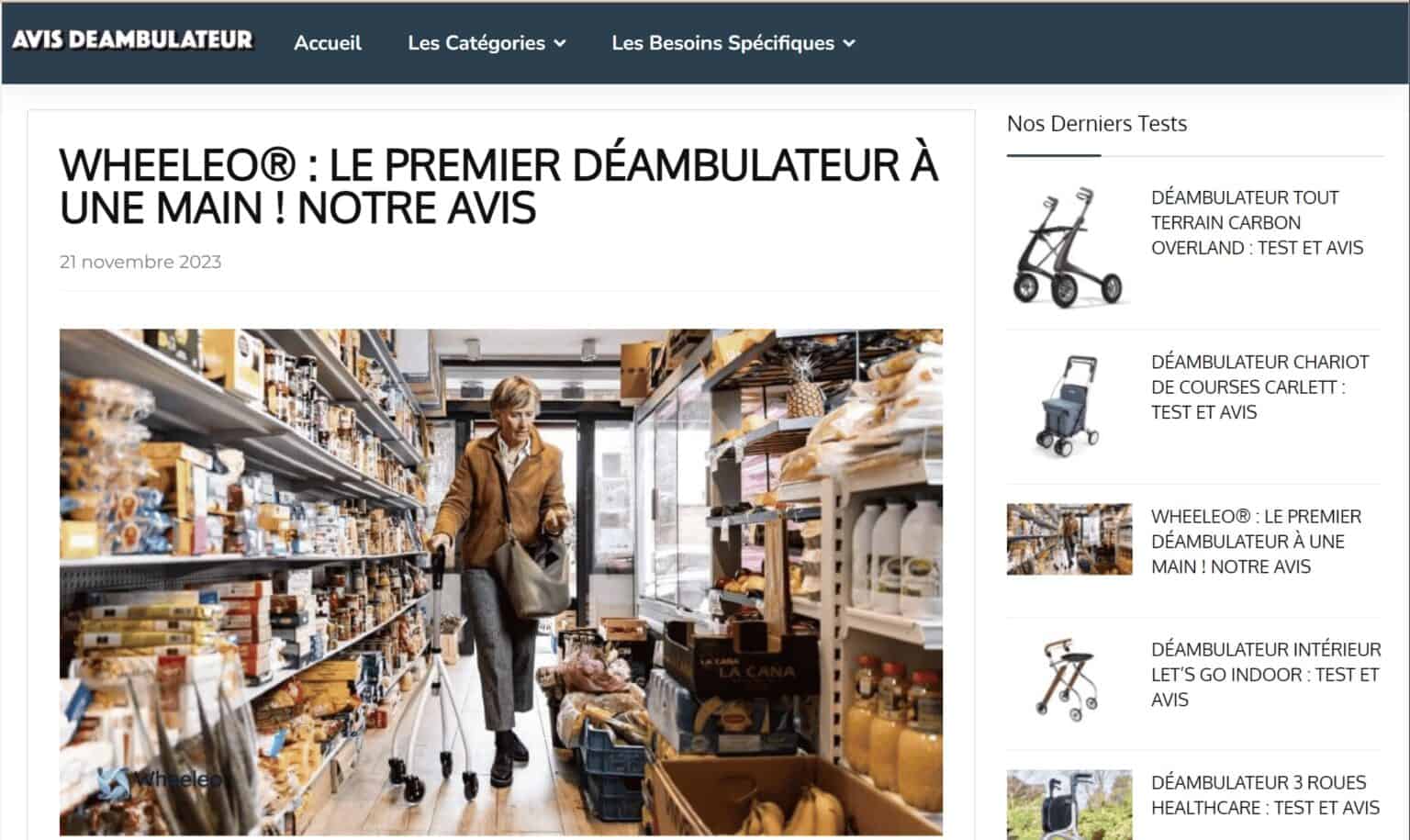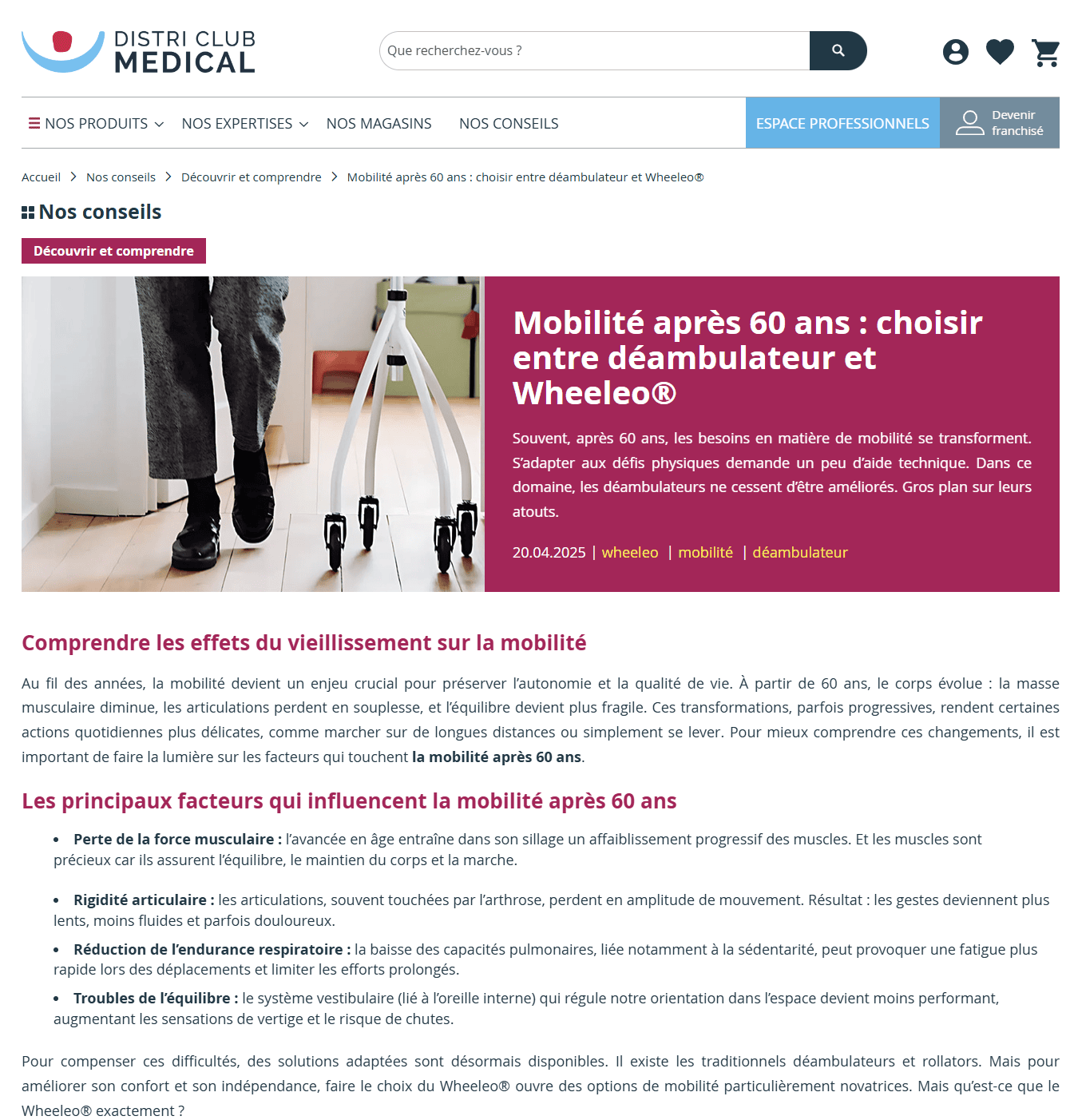Parkinson’s disease is a neurological disorder. It is accompanied by motor and non-motor symptoms1 :
Motor symptoms :
Non-motor symptoms :
Motor disorders are characterized by ON and OFF phases.
Parkinson’s patients often have a very high step frequency. He literally “tramples”. We also call this “festination”. The high frequency is accompanied by a short step length. This stomping may appear abruptly as the patient passes through a door, turns back, is distracted or frightened. As a result, the person may be thrown forward as if the body were still moving faster than the feet.
Coordination or cognitive disorders can make it difficult to use a mobility aid.
With the passage of time, the joints of a Parkinson’s disease patient stiffen. It is not uncommon to observe knee and hip flessum, forward tilt of the trunk, stiffness of the neck and stiffness of the shoulders. Combating this stiffening is a major objective of physiotherapy management.
At an advanced stage, the Parkinsonian may present a retropulsion. This retropulsion will be the major cause of difficulty in walking, difficulty in standing up, and falls. At this stage, the use of certain mobility aids will not sufficiently correct the problem. The patient will then be dependent and will hardly be able to move around on his or her own.
In the early stages of the disease, the use of a walking aid is not necessary.
Next comes the use of a simple cane, often to reassure rather than to help.
In the more advanced stages of the disease, coordination with a conventional cane is often impaired. Given the high step frequency, coordination is almost impossible. The cane is more often in the air than supported. A conventional cane can even make walking more difficult.
The use of a 4-wheel rollator overcomes the coordination problems associated with high step frequency. It provides constant support on the ground and acts as a “shield” for people you may pass (protection). It naturally leads to smoother walking.
Nevertheless, the rollator is bulky, unwieldy, difficult to maneuver and requires both hands. Excellent for straight-line outdoor use, less so for indoor use.
Indoors, on smooth floors, the Wheeleo® provides a much more suitable aid for Parkinson’s patients:
At a very advanced stage (or in the off phase), Parkinson’s sufferers become dependent on their mobility aids to help them stop. He is carried away by his body. The use of a rolling aid is no longer appropriate. Only walking frames will, for a time, limit imbalances.
When falling backwards, no walking aid can really prevent the fall.
The Wheeleo® is an integral part of mobility aids. For Parkinson’s patients, it’s somewhere between a cane and a 4-wheel walker. It’s an intermediate step between a cane that gives too little help and a rollator that gives too much.
reference :
The Wheeleo® helps you regain your autonomy by freeing one hand and providing continuous assistance in your daily activities.

The Wheeleo V2 is an innovative walking aid, designed to offer more stability than a classic cane while remaining much more maneuverable than a walker.
We tested it at the Autonomic Paris exhibition, and we share our review of this test. The founders are very active in showcasing the qualities of their product.


A new walking aid technique made in Belgium, the Wheeleo® is the first one-handed walker. Designed by physiotherapists and launched in 2018, it was perfected in 2020. The Wheeleo® provides constant support without needing to be lifted, all with minimal bulk. Depending on your physical abilities and the environment you are in, it can therefore be a perfect compromise between a cane and a walker.

Often, after 60, mobility needs change. Adapting to physical challenges requires a little technical assistance. In this area, walkers are constantly being improved. A closer look at their advantages.

Do you need a temporary walking aid, but hesitate to invest in an expensive product? Renting a Wheeleo® from Qualias is an ideal solution to meet your mobility needs, without compromising on quality or comfort. Initially designed for people who can only use one arm, the Wheeleo® ensures fluidity and stability in all your movements. An opportunity not to be missed to test this innovative product and regain confidence in your movements, whether at home or outdoors.

Unfortunately, we are currently unable to deliver the Wheeleo® directly to your area.
Please leave us your contact details, and we will contact you as soon as we have a solution to offer you!
Good news, the Wheeleo® is available in your area.
To do so, please visit our local partner!
Good news, the Wheeleo® is available in your area.
To do so, please visit our local partner!
Good news, the Wheeleo® is available in your area.
To do so, please visit our local partner!
Good news, the Wheeleo® is available in your area.
To do so, please visit our local partner!
Good news, the Wheeleo® is available in your area.
To do so, please visit our local partner!
Good news, the Wheeleo® is available in your area.
To do so, please visit our local partner!
Please fill in this short form so that we can contact you to arrange a test.